SUMMARY
This is AI generated summarization, which may have errors. For context, always refer to the full article.
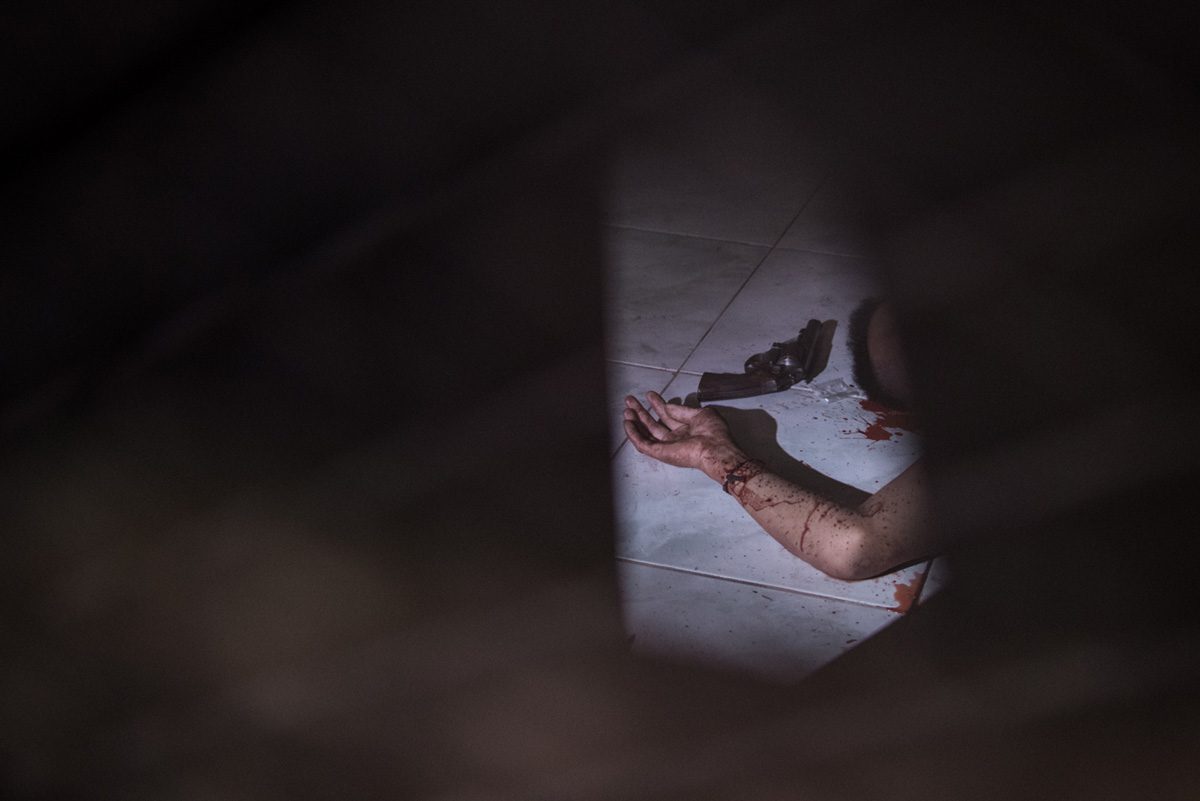
This compilation was migrated from our archives
Visit the archived version to read the full article.
In the beginning, on the first day, he promised a new earth.
He said the fishes will feed fat on the corpses of criminals. He said morticians will grow rich with the deluge of dead. He said the police will be protected from punishment, and his chief of police suggested the burning of houses. He said to kill the addicts; it will be a kindness to their parents.
And he said, Let there be blood, and there was blood.
He named the beasts and called for their slaughter. The drug lords, the addicts, the criminals, the gun-wielding paranoid schizophrenics who were a bane in his new society. He called for death. His men will make it law.
His name is Rodrigo Duterte, His Excellency, President of the Republic of the Philippines.
And he saw the blood, and he said it was good.
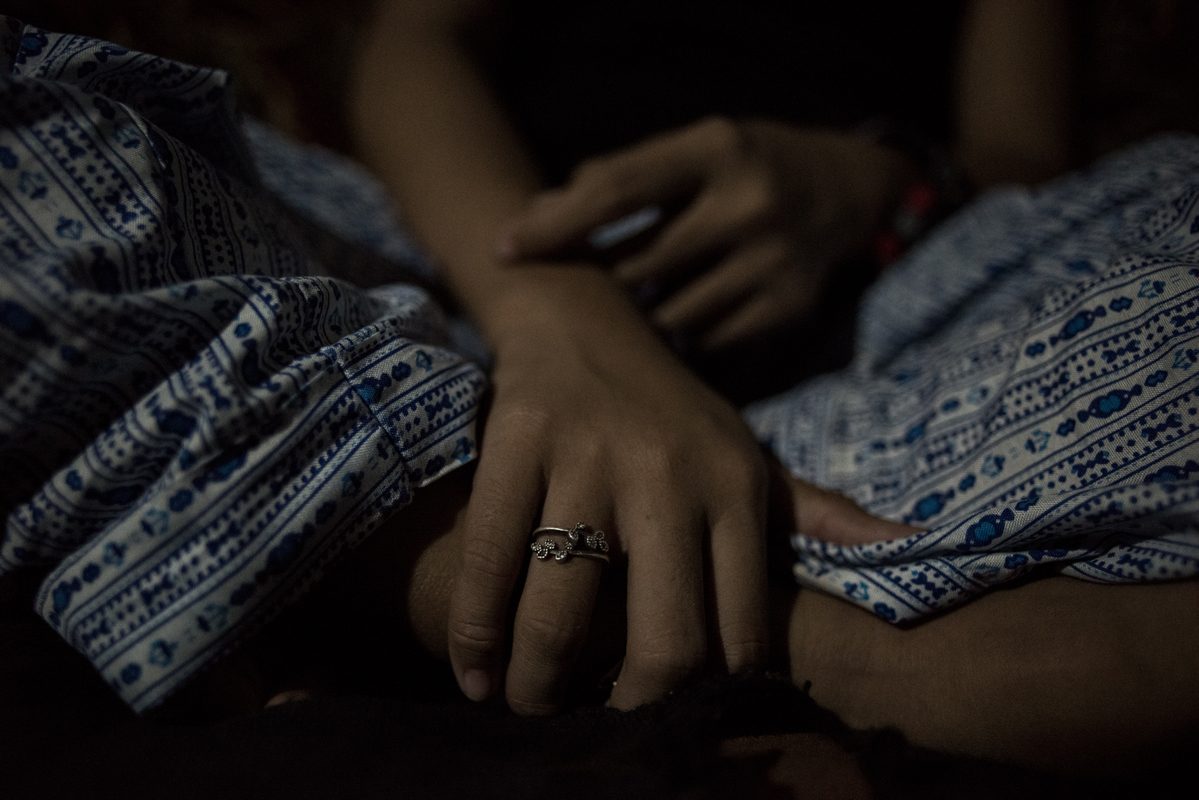
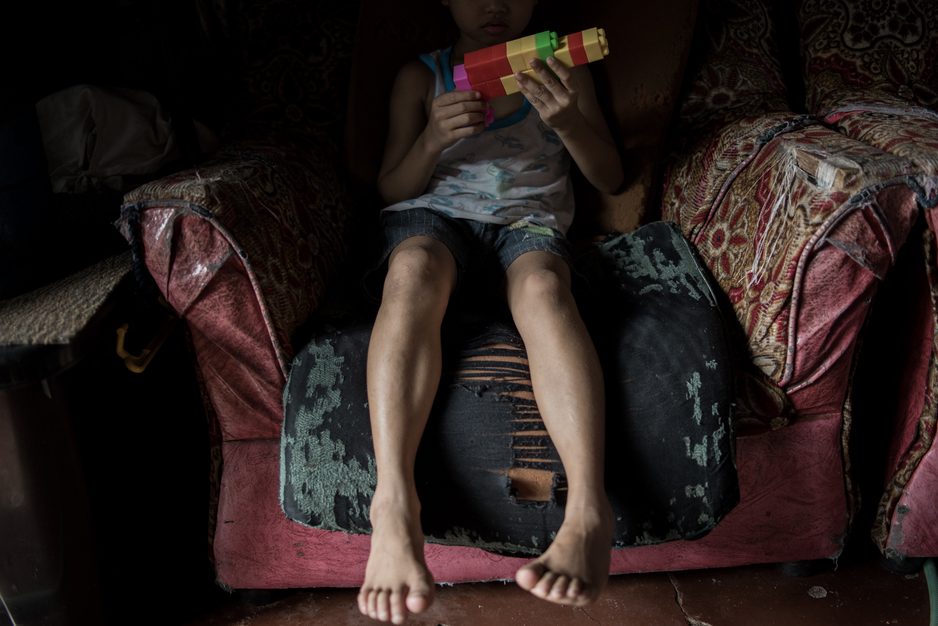
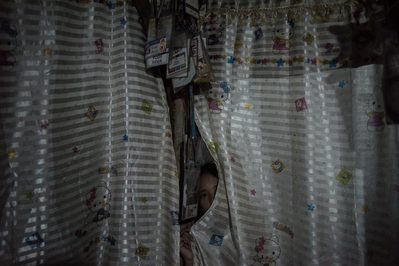
Clockwise(1) Love-love Peregrino. (2) Love-love’s younger brother Adrian playing with plastic bricks. (3) Love-love at her aunt’s home in Payatas-A, Quezon City on December 8, 2016.
OUR FATHER, WHO ART IN HEAVEN
The last word Adrian Peregrino said was love. He turned his head to look at his daughter just before the bullet slammed into his temple.
Love, he said.
Love-love was awake when the killers kicked down the door. Stand up, the men in masks told her father. When Adrian died, the three-year-old son asleep on his chest woke screaming, spattered with blood.
Love-love’s mother Vivian was crying. She thrust a sheet of paper at the two men, proof that she and her husband had already surrendered to the police. Then she begged for her life.
One of the gunmen turned to go. He said they could come back and kill Vivian if she talked.
“Leave the woman,” he said. “Let’s go.”
“I don’t want to,” said the second man.
He raised his gun. “We are Duterte.”
Vivian died on her knees. Love-love screamed. Caught her mother in her arms. Fuck you, fuck you, she screamed, you killed my mother.
The man with the gun aimed the muzzle at Love-Love’s face.
Shut up, he said, or we’ll kill you too.
We are Duterte, he said.
Police Superintendent Robert C. Domingo, former chief of Police Station 6, Sta. Ana, Manila, now heading Police Station 1, Tondo
HALLOWED BE THY NAME
The chief of police of the 84 villages of Sta. Ana, Manila is no coward. The reason he is not a coward is because his commanders are not cowards. His president is no coward. His chief of police is no coward. Domingo tells his men, all 280 of them, that they can’t dare be cowards themselves. This, he says, is the golden age of the police.
Ask Police Superintendent Robert C. Domingo what he thinks of His Excellency Rodrigo Roa Duterte, and he will give you one answer.
Legendary, he will say.
In the first hundred days of the Duterte administration, 12 alleged drug personalities were killed in drug operations across the three precincts of Domingo’s Sta. Ana. Each of the 12 allegedly fought back.
Domingo is firm that the drug menace must end. It is a gift to the next generation. Drugs affect families, shrink minds, destroy homes. It would be too painful, says Domingo, if he discovered his own 18-year-old son were involved in drugs. Better he became a drunk. Better he became anything else.
Duterte himself once said none of his children were involved in drugs – “But my order is, even if it is a member of my family, ‘kill him.’”
Ask Domingo what he thinks of Rodrigo Duterte’s order. Ask him if he would kill his own son.
“Reality bites, but it’s true.” He shrugs. “My son would be useless to me. For me, that’s it.”
Blood on the ground after an unidentified man is killed along Roxas Boulevard in Pasay City on November 15, 2016.
THY KINGDOM COME
In the police report, the five men who were shot in Payatas-A on August 14, 2016 were killed in self-defense. Erwin Polo, 38, male, married, and jobless, was standing “at the door of his house apparently waiting for a drug customer while his cohorts engaged in a pot session inside.” An undercover police operative stepped up to his door. Erwin Polo “sensed the presence” of police operatives,” cursed, then shouted, “Police, police, police!” He ran into his house, where he and “his cohorts desperately pulled their handguns” to fire at the police team.
The police were forced “to retaliate.” Five men of the men died, including Erwin Polo. One was injured. The police collected four guns at the crime scene, along with heat-sealed packages of a crystalline substance suspected as shabu.
Witnesses tell another story, of Erwin Polo, asleep on the second floor of his house while his friends drank their way through a case of Red Horse beer. It was not Polo who opened the door, it was his friend Blink. At the door, Blink said, “Sir, please don’t, there’s nothing here,” and then there was a gunshot.
Heavy steps pounded up to the second floor. There was shouting – “This is a raid, nobody run!” Six gunshots blasted out in quick succession. Women and children were dragged bodily out into the rain by policemen in bulletproof vests and helmets. When the family returned, the second flood was a awash in blood. A number of items were missing: a silver necklace, a pair of silver earrings, a ring, a TV Plus, cash, and the brand-new pair of shoes that Erwin Polo’s wife bought for his birthday.
A December 2016 Reuters report puts the police kill ratio at 97 percent, suggesting that “officers are summarily gunning down suspects in President Duterte’s crackdown.”
Erwin Polo, 38, male, married, jobless, was found in the morgue with a bullet hole beside his nose and another on his chest.
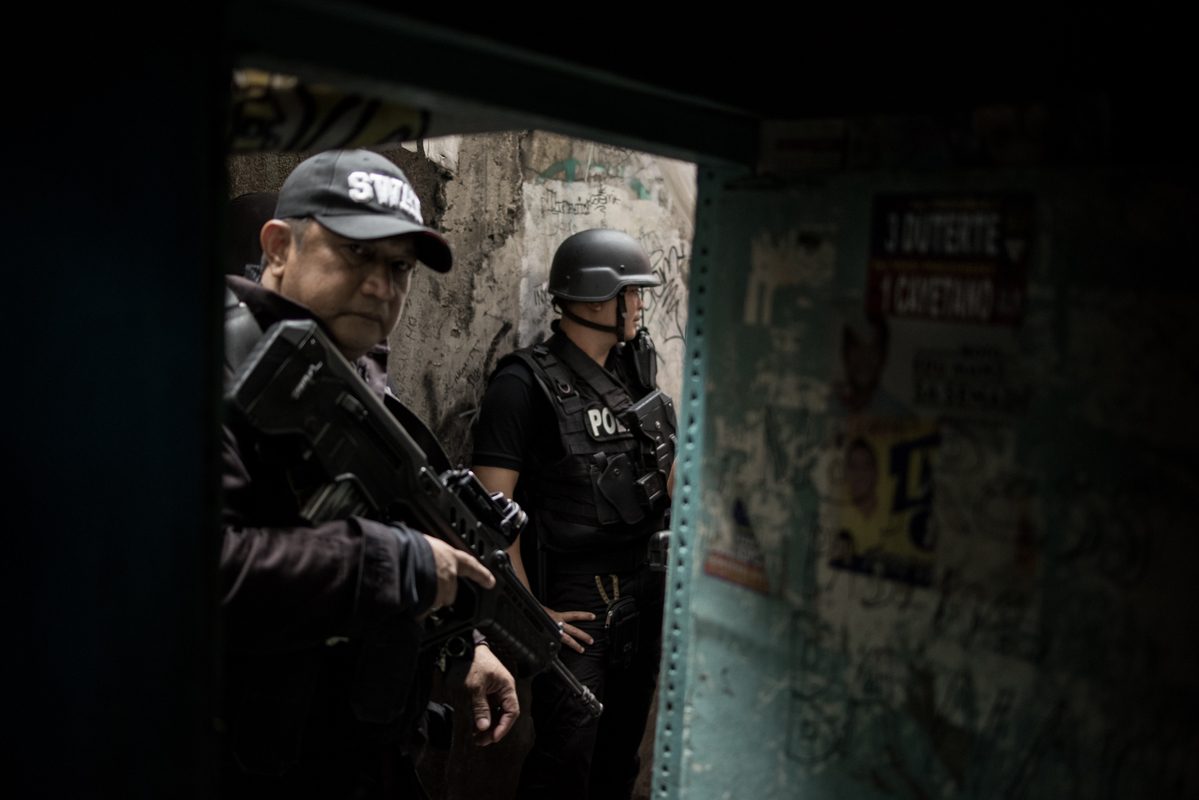
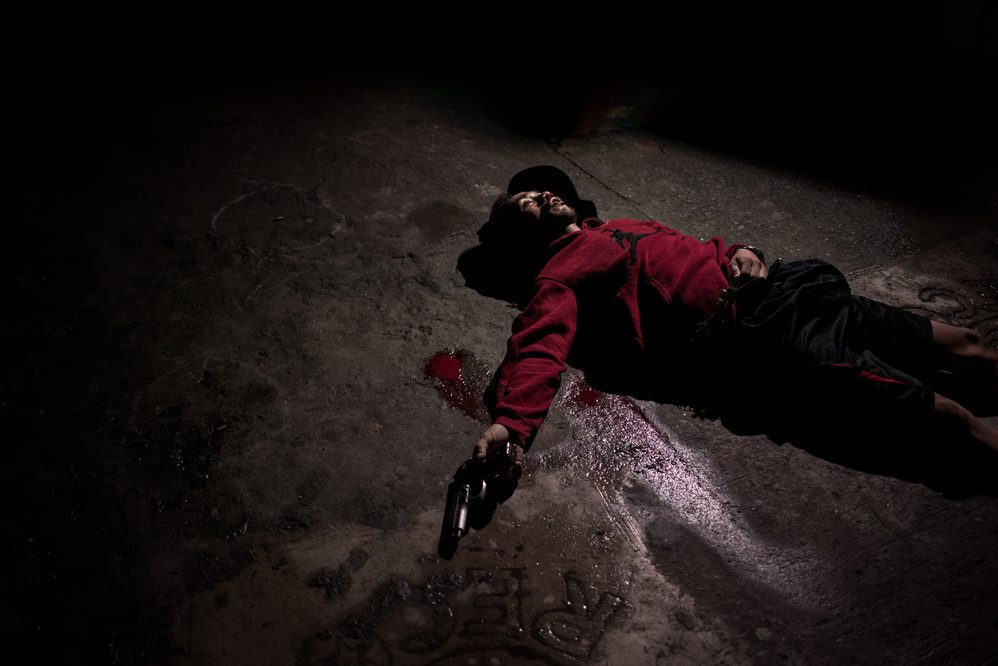
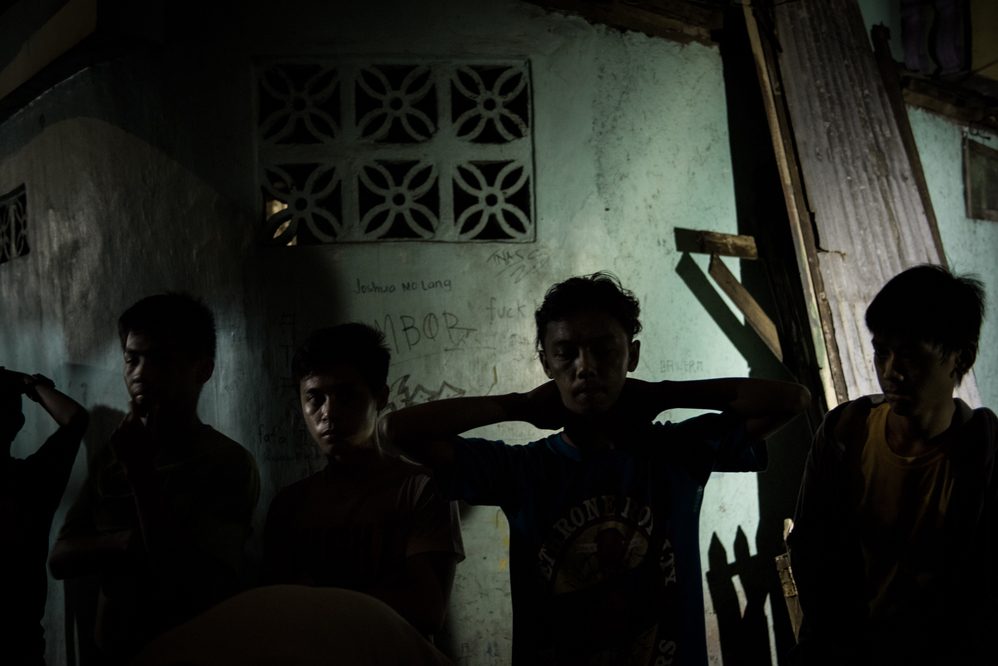
Clockwise(1) Police at a drug raid in Rosario Village, Pasig City on September 14, 2016. (2) Alleged petty offenders being profiled by police during a “One Time, Big Time” raid in Pasig City on August 27, 2016 (3) A drug suspect killed after allegedly fighting back at police during an encounter at Camarin, Caloocan City on September 16, 2016.
THY WILL BE DONE
It begins with a man called Crocodile. They said he was the toughest, meanest sonofabitch to have ever set foot in Santa Ana. Big and bad, a monster of a man, six feet tall and maybe an inch over. They say he shot at his neighbors. They say he beat up his sister. They say he tossed a firecracker out of his third floor window one day in May – tossed it out and boom, two children in the hospital and Crocodile nowhere to be found.
One day, the 800 residents of Village 767 gathered at a basketball court. The village officials said they were going to have a vote. They wanted the process democratic. They didn’t want to be accused of pointing fingers and taking sides.
Tell us who the dealers are, they said. Put the worst on top. No need to write down your names.
There was a box on a table. The lists went in. The village officials counted out the names, signed the bottom of the tally and handed the list over to the police. The vote was unanimous – Crocodile.
Twenty cops gathered at the corner of Estrada Street in the early morning of August 28. An undercover cop climbed three flights and knocked on the door of Ryan Eder, 29, alias Crocodile. The story goes that Crocodile saw the bulge under the cop’s shirt and ran into another room for a gun. The cop was faster on the trigger. Four shots, and off Crocodile went to meet his maker.
There was a sigh of relief when Crocodile was killed. Someone called Station 6 to say thank you. Someone sent a platter of steamed rice cakes. It was nice, say the police, to feel so appreciated.
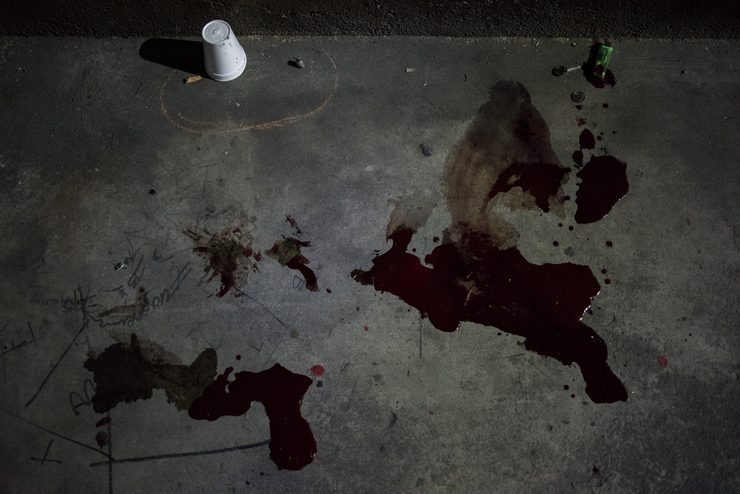
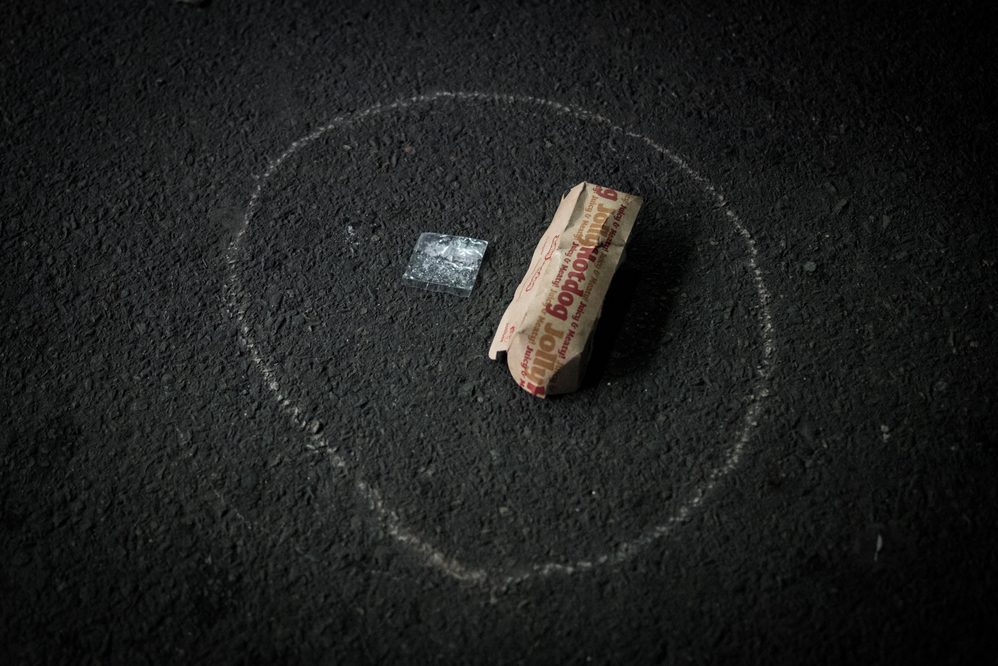
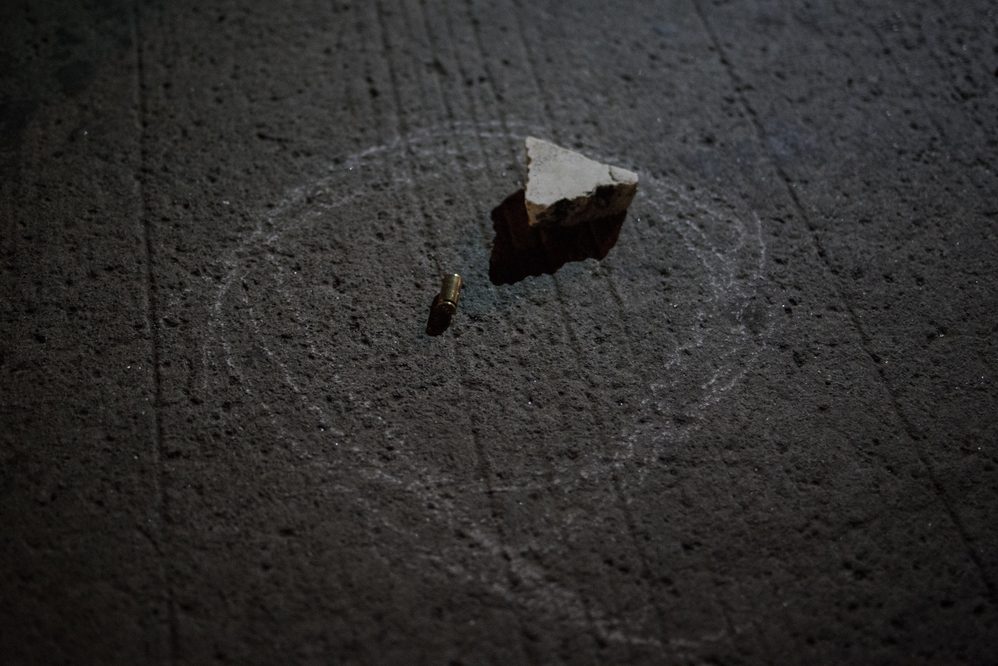
L-R(1) Blood on the ground at a Caloocan City crime scene on December 6, 2016. (2) A packet of what appears to be shabu found beside the body of barker Edwin Alon-Alon on October 18, 2016 along Quirino Avenue, Pasay City. (3) Bullet casing found after a police shootout along Sto Domingo Avenue in Quezon City on September 6, 2016.
GIVE US THIS DAY OUR DAILY BREAD
One October evening, a man named Petus was shot behind a gas station 7-11 along the Parañaque Airport Road. Twenty minutes later, a half-mile away, a jeepney barker was shot along the Coastal Road, two feet from the glass doors of another 7-11, across the street from Willie Mart, where another man was shot dead the week before. The barker, Edwin Alon-Alon, was hailing passengers at a crowded intersection when a man in a grey hoodie walked up behind him, shot him in the back of the head, tossed down a sign, then walked away.
The term is extrajudicial killing. In the weeks since Rodrigo Duterte became president, the usage of the phrase has become so pervasive, so ubiquitous, that it has become regular street parlance for drug-related murders. An extrajudicial killing is specific. It requires planning and intent. It is outside the bounds of self-defense and the terms of engagement required of any declared war.
There are other words for this. Summary executions. Targeted killings. Congress chose to drop the term “to put things in proper perspective and correctly define the issue,” further citing a Wikipedia definition defining extrajudicials as politically-motivated. The police now call them DUIs – Deaths Under Investigation.
Those who are killed on scene are often found face down, the backs of their heads a mess of blood and brain. Those killed elsewhere are often found in dark alleys with wrists and feet trussed. The bindings range from cable ties, steel wiring, packing tape, rope, or the pre-cut plastic cables used to snap grocery bags closed. Faces are sometimes found wrapped tight in packing tape. Scene of the crime operatives use plastic cutters, tracing the jawline ear to ear with thin blades. The tape is pulled away, millimeter by millimeter, the effort stretching the mouths into macabre grins. The verdict is suffocation.
A scrawled sign – addict, pusher, user – is sometimes left propped by the body. In recent weeks, the accusations have gone beyond drug involvement. Victims have been called snatchers, housebreakers, carnappers. The signs include jokes, attempted witticisms, hashtags, happy faces, the entire bloody range of torture and murder reduced to memes.
One night in November, a body was found face down along Chapel Road in Pasay City. The particulars were the same: the head wrapped in yellow tape, the hands bound together, the letters printed with a black marking pen accusing him of dealing drugs.
Then the cops turned the body over. Someone had taken the same marking pen, and had drawn eyes, nose, and a grinning mouth over the wrapped face of the dead man.
TOP TO BOTTOM(1)The bodies of Angel Fernandez and Jerico Camitan, killed by unknown assailants along Gumamela St in Commonwealth Village, Quezon City on October 25, 2016. (2) Rommel Camitan at the double funeral on November 13, 2016 after donors sent burial assistance. (3) The coffins of Fernandez and Camitan at the Bag-bag Cemetery in Novaliches.
AND FORGIVE US OUR TRESPASSES
Had Rommel Camitan been home at eleven in the evening of October 25, his son would have been alive.
The trouble, says Rommel, was that he wasn’t there. Rommel was away that night, just as five bullets smashed into the gangly body of his son a few feet away from the 17-year-old girlfriend left to bleed against a pile of debris.
If Rommel had been there, he would have protected Jerico. He was a father. Jerico, 21, was his youngest. It is what a father is meant to do. But Jerico is dead, and so is his girl Angel. Rommel failed because he wasn’t there.
It is what has been in his mind in the more than two weeks since Jerico’s coffin arrived at Number 1225 Riverside. He could not bury his son, because he was told to pay more than half a hundred grand. The longer he waited, the longer Jerico suffered. Rommel failed him once. As he lay for days in the white coffin, Rommel failed him again.
The burial of 5-year-old Danica Garcia in Dagupan, Pangasinan on September 1, 2016.
AS WE FORGIVE THOSE WHO TRESPASS AGAINST US
On August 31, Maximo Garcia, accused drug dealer, sat inside a small cement room where the face of Jesus Christ looked benignly down from a wall calendar. It was eight days after his 5-year-old granddaughter was killed with a bullet meant for him. Maximo did not attend Danica’s funeral. His family told him to keep away.
If he owned a car, he would have gone anyway, no matter what his wife thought. He had planned it all out. He would follow the procession. He would park nearby. He would watch in secret from behind the windshield as the three men – it took only three men – carried the small white coffin into a corner of the flooded public cemetery. Only Maximo didn’t own a car, and knew no one he could have borrowed one from.
He understood why he shouldn’t go, and why his family had taken him straight from the hospital to hide him in a house far away. The men in masks could come back and finish the job. Nobody would go to visit his Danica Mae. Maximo wanted Danica surrounded by her mourners. She deserved it, and so much more.
Maximo had been a supporter of Rodrigo Duterte. He still wears the red and blue baller band with Duterte-Cayetano outlined in white. Maybe Danica would have died even without Duterte in the Palace, maybe she wouldn’t have. All he knows is that there have been many deaths, many of them men on the same list his name had been found.
“Let them come and kill me if they can,” he said. “I leave it to God. God knows who is the sinner, and who is the one with the truth.”
So Maximo waited alone, a big man with a hard heavy belly and red-rimmed eyes. He cried a little, prayed a little, cleaned what bullet wounds he could reach. He called Danica’s parents, and told them to lean over her coffin and whisper to her that grandpa loved her.
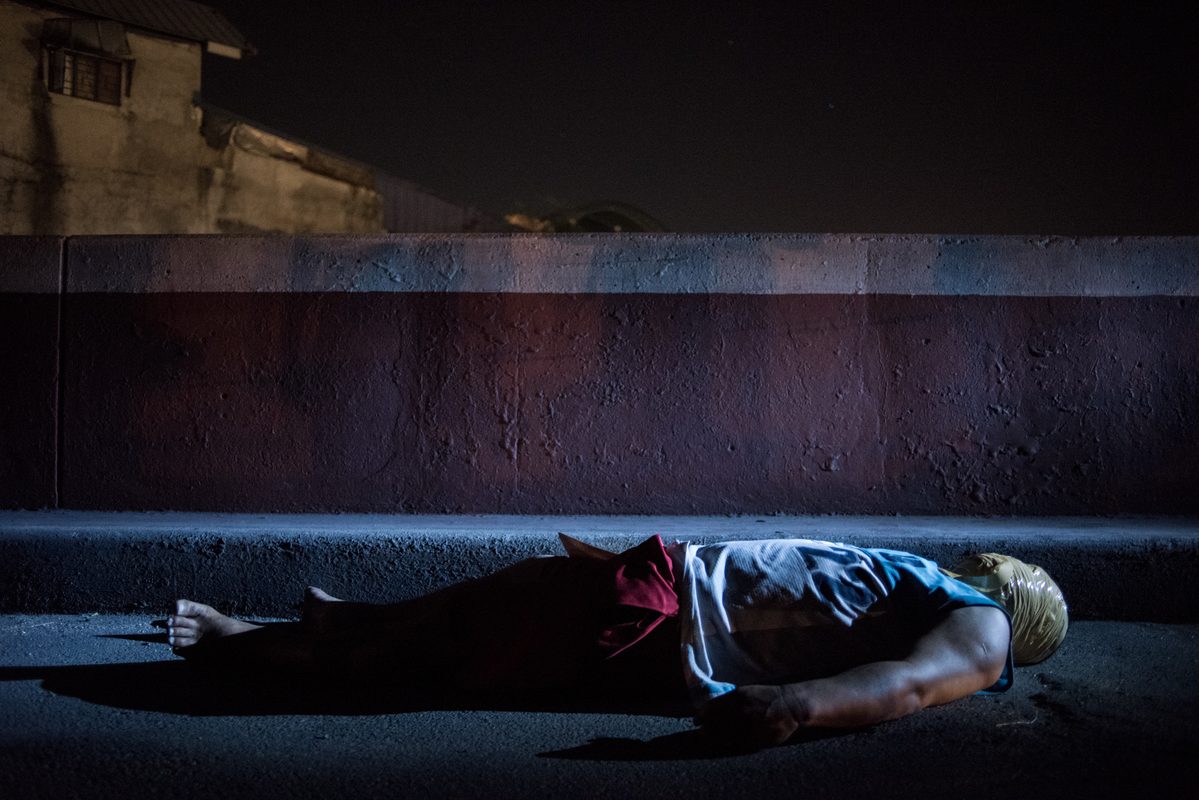
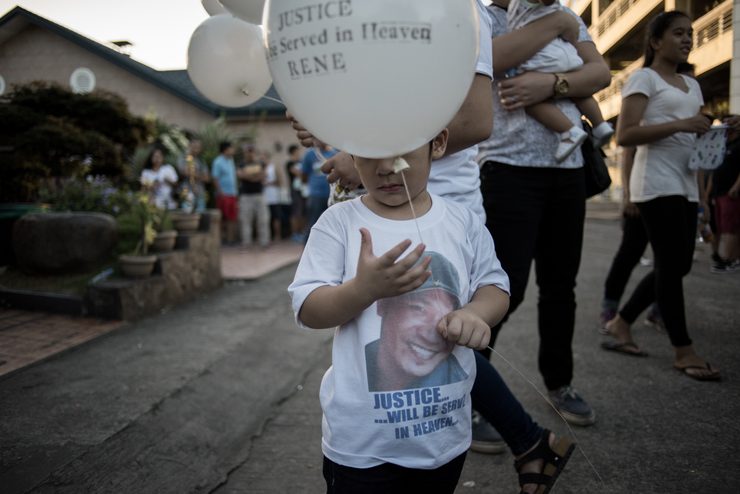
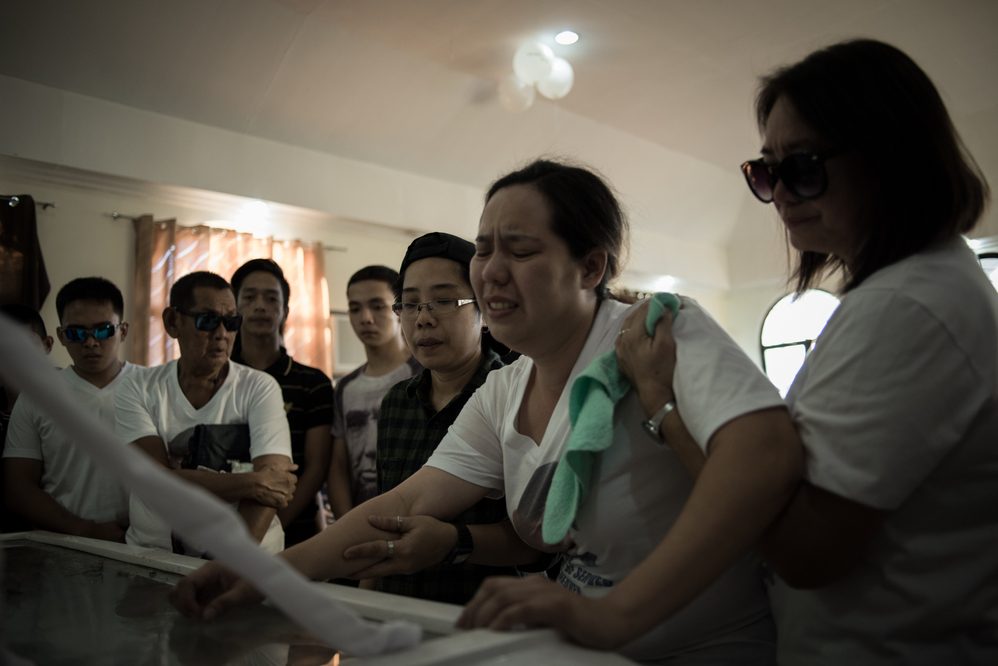
Clockwise(1) Rene Desierto, found in the early hours of November 22, 2016 along the Del Pan Bridge in Tondo, Manila. (2) Three-year-old Xyler outside the Loyala Heights crematorium on November 30, 2016. (3) Ivy Desierto, Xyler’s mother, just before the cremation of Rene Desierto’s body.
AND LEAD US NOT INTO TEMPTATION
Xyler called his father The Incredible Hulk. His father had named him for a superhero. At three, Xyler was too young to remember his father was dead. Certainly he was too small to ask questions – the glass top of the coffin was two inches higher than his head, much too high to see, even when he bounced up and down on the tips of his toes.
Nobody told Xyler that The Hulk had been left at the edge of a bridge with holes on his chest, or that the police had broken a pair of scissors cutting through the mask of tape wrapped tight around The Hulk’s head.
All Xyler knew was that his mother had cried, and that The Hulk was nowhere to be found, no matter where he looked.
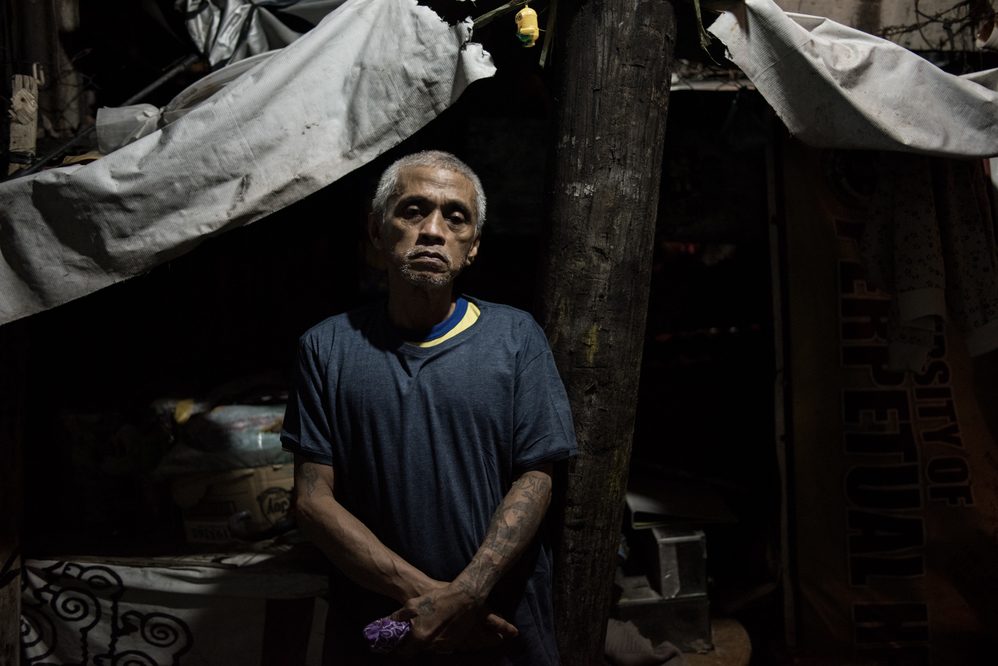
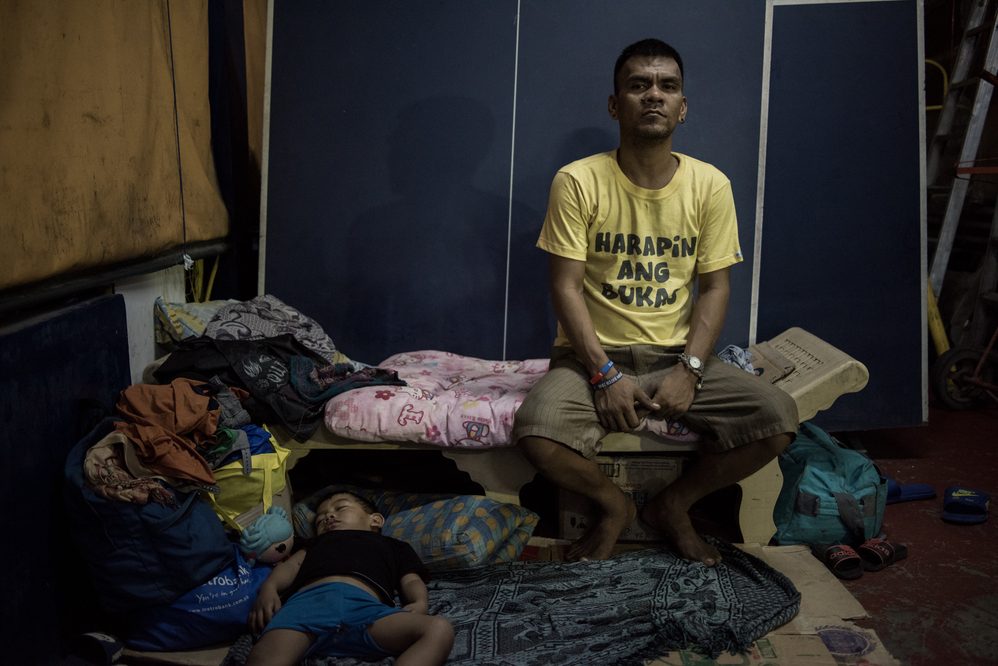
L-R(1) 59-year-old Reynaldo Bolos, at his son’s wake at Village Harapin ang Bukas on December 12,2016. (2) Christian Bolos, with his young son.
BUT DELIVER US FROM EVIL
“I have two sons,” said Reynaldo Bolos. “Milton Ace, the one they killed, was 29. Christian, the one they’re going to kill, is 36.”
The Bolos men, father and sons, were told they were scheduled to die. The warning came in the night. Someone had seen the kill list, and saw the names of the three men. It was no surprise to Christian, who had been hiding from the men in masks and bonnets. Neighbors told him he was being hunted.
But Christian was slippery, so Milton died first, at half past one in the afternoon on December 6, a day after the warning. Three shots to the temple, one more between the eyes. Reynaldo had seen the two men on a motorcycle, heard the gunshots, and ran back to see his son’s dead on a folding chair, bleeding into the yellow canvas. Reynaldo ran, fast as he could, past his son’s body, past the village hall, screaming, help, help, they killed my son.
He chased after the killers, but he was old and the motorcycle went fast. He ran back to wrap his arms around his boy, held him so tightly he was covered in Milton’s blood.
“My prayer to God is that Duterte will be next,” Reynaldo said. “Fuck you, you will die someday too.”
Reynaldo Bolos, 59, of Village Harapin Ang Bukas – Face the Future – is worried for his son Christian. He does not worry about himself. There is an old superstition that to carry the blood of the dead means to follow them into death. He does not mind. He loved his Milton, and would like to die too.
FOR THINE IS THE KINGDOM, THE POWER AND THE GLORY
“Kill them all,” Rodrigo Duterte said in March, months before the May 2016 presidential elections. “When I become president, I’ll order the police and the military to find these people and kill them. ”
In the beginning, he promised the deaths of a hundred thousand.
“If I couldn’t convince you to stop, I’ll have you killed… if you’re into drugs, I’m very sorry. I’ll have to apologize to your family because you’ll surely get killed.” He said that those who are addicted to shabu are beyond rehabilitation.
Since the first of July until the 30th of November, according to numbers released by the Philippine National Police, there have 3,993 murdered in extrajudicial killings across the country. Those who are identified are often poor, often male, often jobless, living hand to mouth and moonlighting as tricycle drivers and construction workers. Sometimes families will admit drug use and occasional peddling.
Sometimes there are witnesses – the man who saw the victim cuffed at a police station before his body was found trussed and tortured on a highway, the woman who knew the name of the cop who killed her brother, the friend who was standing at the street corner when the teenager was abducted. Very few will speak on the record. They talk about masked men wandering past their houses at night. They talk about children at risk. Sometimes they will say the dead deserved to be killed – You will be safe, for as long as you behave.
In a televised speech in June, then president-elect Duterte appealed to a Davao crowd for help.
“Please feel free to call us, the police, or do it yourself if you have the gun – you have my support,” Duterte said. And if a drug dealer resists arrest, “you can kill him,” he said. “Shoot him and I’ll give you a medal.”
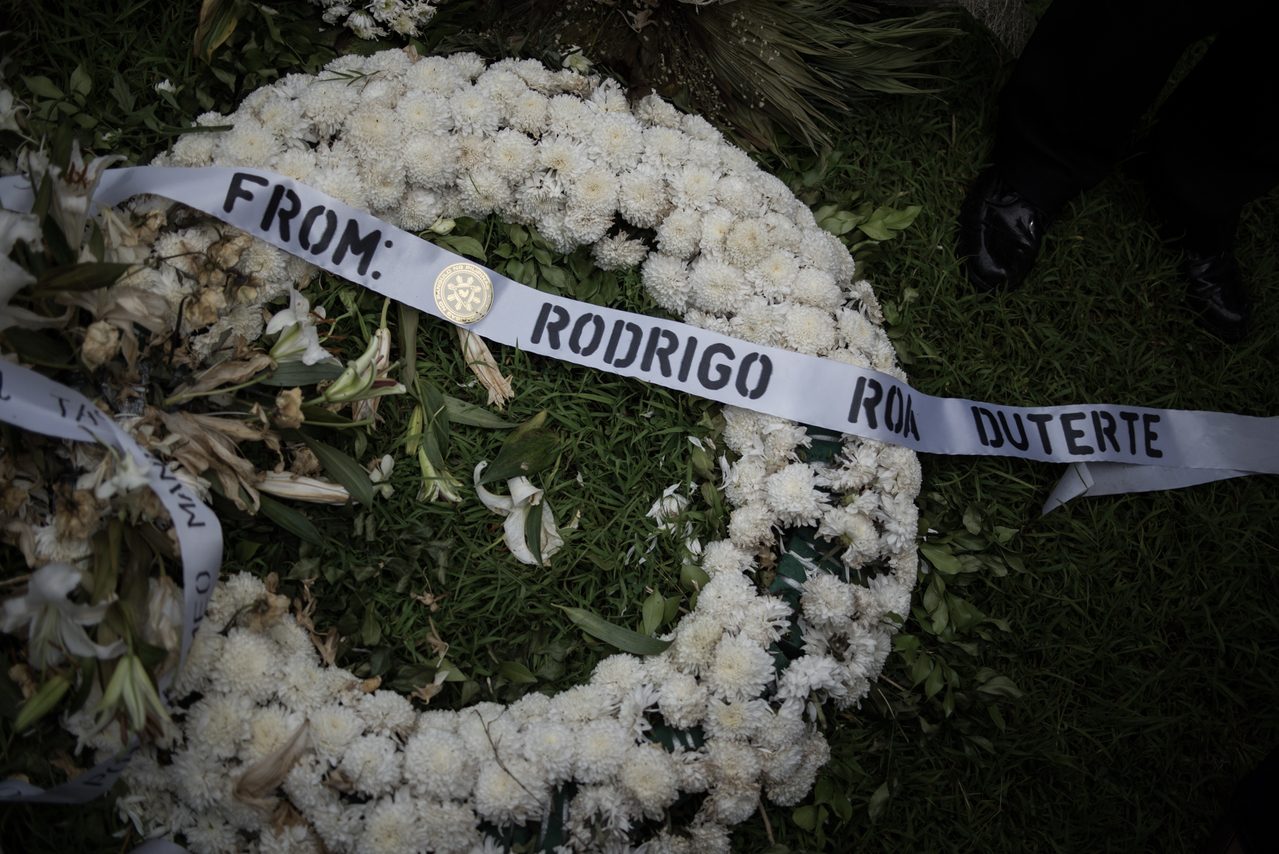
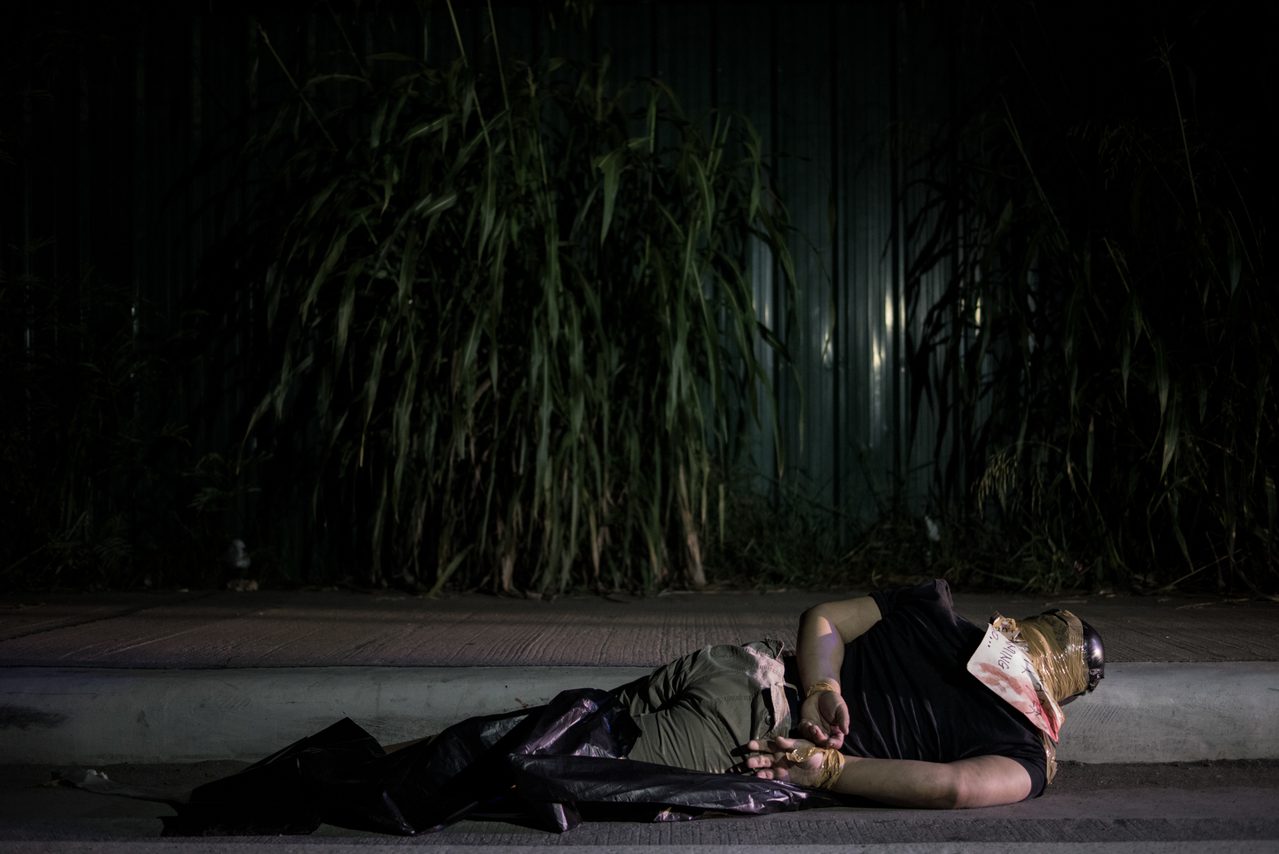
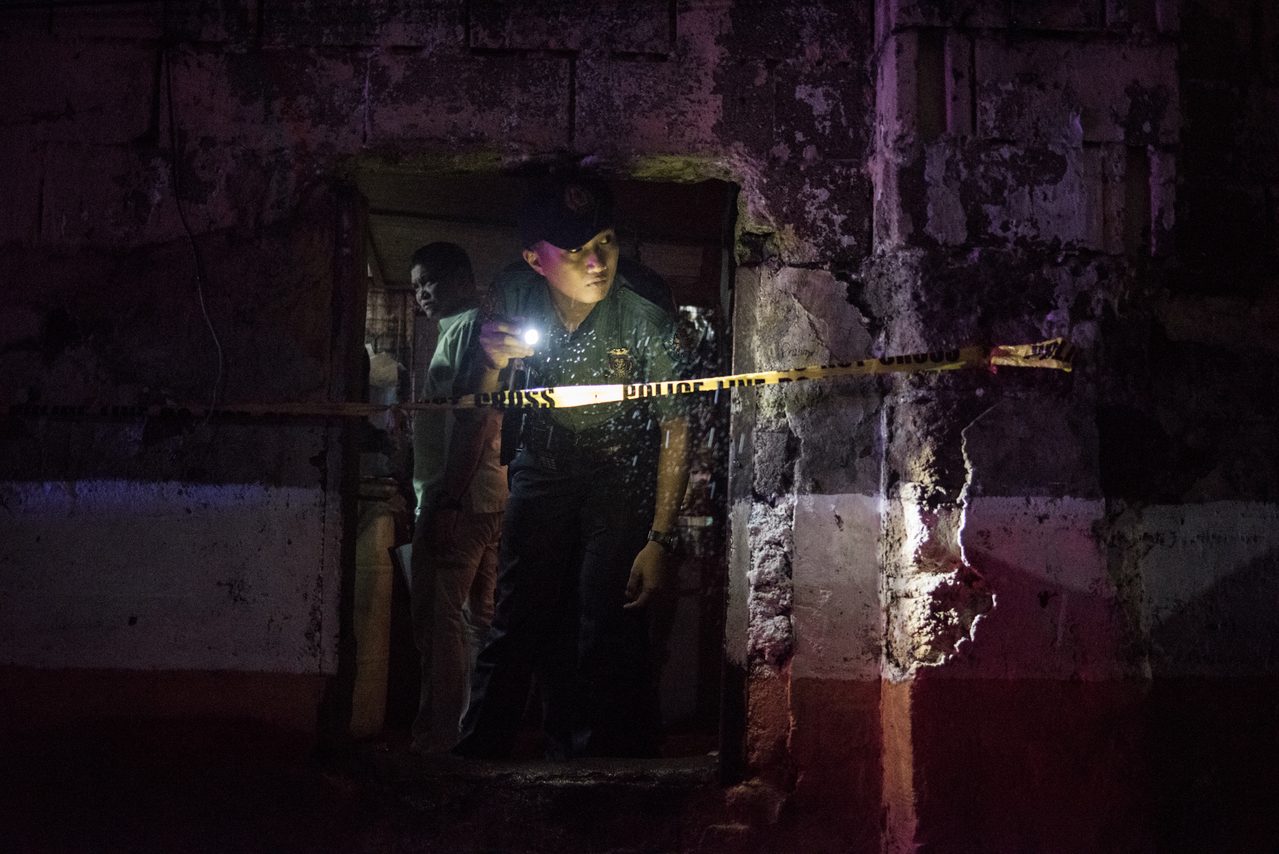
Clockwise(1) A wreath sent by the Palace for the September 25, 2016 funeral of PO1 Romeo Mandapat Jr, who was killed in the line of duty at a drug bust operation in Camarin, Caloocan. (2) An unidentified man killed with an ice pick by unknown assailants on July 27, 2016 at Diokno Boulevard in Pasay City. (3) A police officer investigates the murder of 20-year-old alias Botbot, killed along Samson Road, Caloocan City on December 12, 2016.
NOW AND FOREVER, AMEN
On the first month of the war against drugs, the President declared war. “We will not stop until the last drug lord… and the last pusher have surrendered, or are put either behind bars or below the ground, if they so wish.”
On the second month of the war against drugs, police reported 929 drug suspects killed in government operations and 1,507 by non-state actors. Asked if the spate of targeted killings could constitute crimes against humanity, the President said many drug users were beyond rehabilitation. “You cannot wage a war without killing,” he said. “In the first place, I’d like to be frank with you: are they humans? What is your definition of a human being?”
On the third month of the war against drugs, police reported a 59 percent rise in the murder rate. The Palace declared the drug war a success. “If they pull out a gun, kill them,” President Duterte told soldiers. “If they don’t, kill them, son of a whore. So it’s over, lest you lose the gun. I’ll take care of you.”
On the fourth month of the war against drugs, the President promised to triple the casualty count if drugs were not eliminated. “I tell you, I will triple it. If my will is not done, to get rid of my country of the drug problem, you can expect 20,000 or 30,000 more.”
On the fifth month of the war against drugs, the President threatened to kill human rights activists critical of his war. “I will include you because you are the reason why their numbers swell.”
On the sixth month of the war against drugs, the Philippine National Police listed 6,095 killed in less than six months. At least 2,102 were killed in police operations. The President then admitted he had killed drug dealers himself. “I know it because – I am not trying to pull my own chair – in Davao I used to do it personally. Just to show to the [policemen] that if I can do it, why can’t you?”
“I go around in Davao (on) a big bike and I would just patrol the streets and looking for trouble. I was really looking for an encounter to kill,” he said.
His name is Rodrigo Duterte, His Excellency, President of the Republic of the Philippines, the man who promised the end to drug scourge within six months, or he would resign. There will be no rest on the seventh month.
He said, Let there be blood, and there was blood. And he saw the blood, and he said there will be more. – Rappler.com
(Editor’s note: Rappler has requested a regional breakdown of casualties of police operations and extrajudicial killings from the Public Information Office of the Philippine National Police, as well as information on drug cases filed against arrested drug personalities. There has been no response as of publication. Rappler has also requested for information on the status of deaths under investigation. The request has been rejected. All quotations in Filipino have been translated into English. With research by Rambo Talabong).
Add a comment
How does this make you feel?


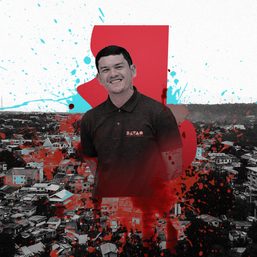
![[EDITORIAL] Hustisya sa Jemboy case: Tinimbang ka ngunit kulang](https://www.rappler.com/tachyon/2024/03/animated-jemboy-baltazar-killing-verdict-carousel.jpg?resize=257%2C257&crop=257px%2C0px%2C720px%2C720px)
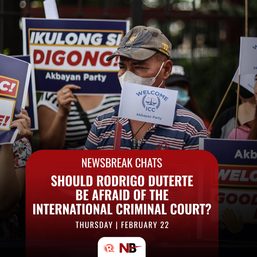



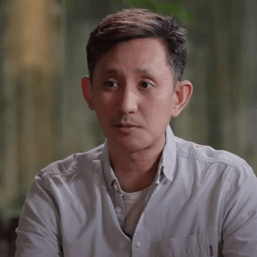
![[WATCH] Dahas Project, the team that continues to count drug war victims](https://www.rappler.com/tachyon/2024/03/dahas-project-2.jpg?resize=257%2C257&crop=404px%2C0px%2C1080px%2C1080px)
![[EDITORIAL] Sorry Arnie Teves, walang golf sa kulungan](https://www.rappler.com/tachyon/2024/03/animated-arnie-teves-arrest-carousel.jpg?resize=257%2C257&crop=310px%2C0px%2C720px%2C720px)
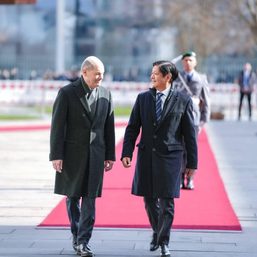
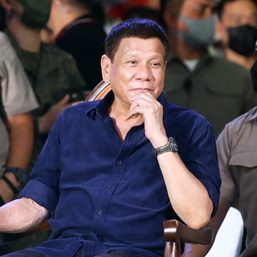
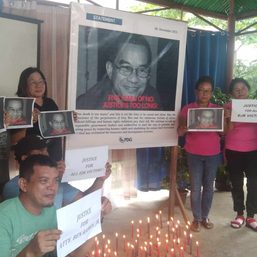
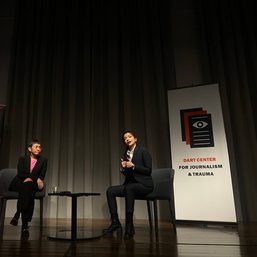


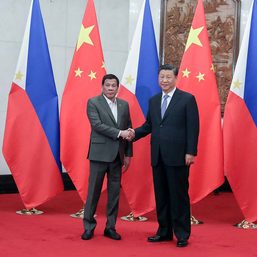

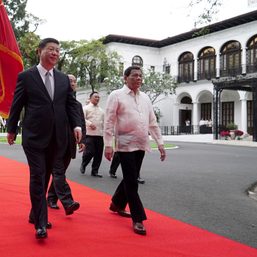
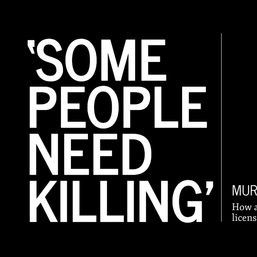

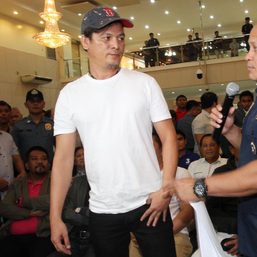
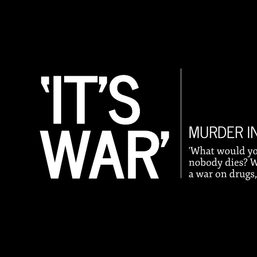
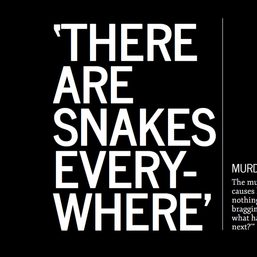
There are no comments yet. Add your comment to start the conversation.